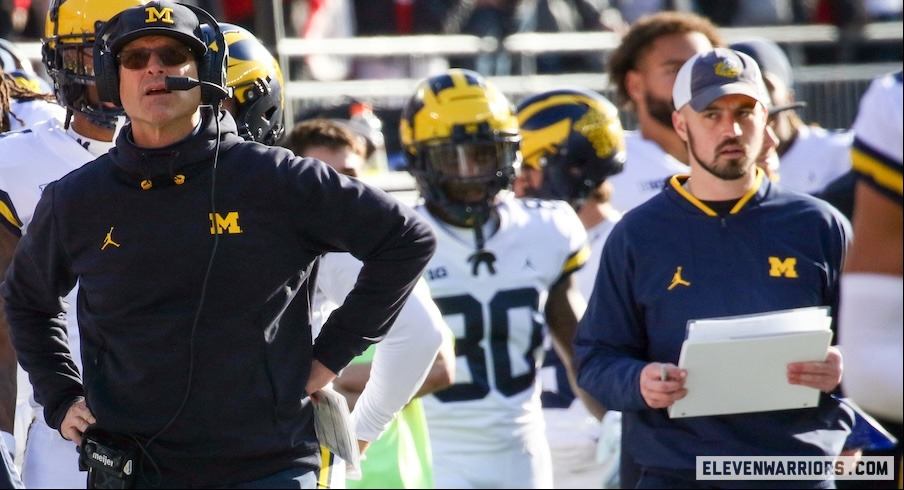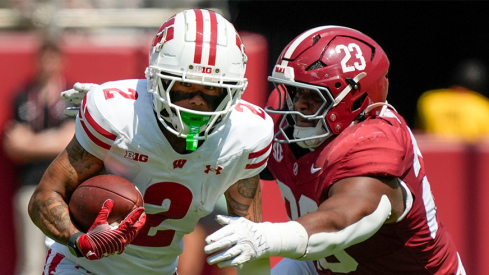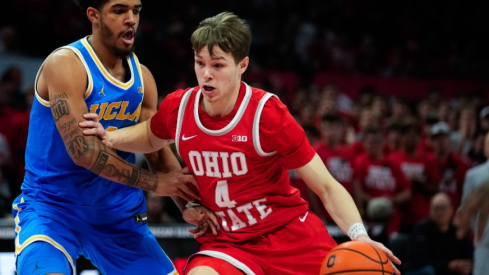The NCAA didn’t even consider vacating wins as a punishment for Michigan’s sign-stealing scheme.
Norman Bay, the chief hearing officer for Michigan’s Committee on Infractions hearing, said a penalty of vacating wins was not considered because the NCAA only issues that penalty when teams play with ineligible players.
“Vacation of records is only in play when there is ineligible competition,” Bay said during the NCAA’s press conference on Michigan’s sanctions on Monday. “That was not a factor present in this case, so it was not a penalty, in other words, that could be considered. And we did not impose it.”
It wouldn’t have been the first time that a team had wins vacated despite having no ineligible players. Penn State didn’t have any ineligible players when it was forced to vacate all wins from 1998 through 2011 due to Jerry Sandusky’s sexual abuse of children. However, those wins were later restored as part of a settlement with the university.
Although the NCAA said there was “overwhelming evidence” that Michigan conducted an impermissible scouting scheme, Committee on Infractions chair Kay Norton said there was “insufficient evidence” that the scheme orchestrated by former Michigan staffer Connor Stalions impacted the outcome of games.
“The NCAA took very quick action once it was apprised of the possibility of these violations, and therefore there was insufficient evidence in the record that the outcome of games was affected,” Norton said.
Despite the lack of both vacated wins and a postseason ban, Bay said the Committee on Infractions felt the punishment it imposed on Michigan – headlined by a fine that could cost Michigan as much as $35 million – is significant.
“I think the penalty here was very significant. I think it was meaningful, and I think it sends a message to the membership that these rules matter, that having a compliance program and strong culture of compliance matter, and that schools and individuals that fail to comply will be held accountable,” Bay said.


